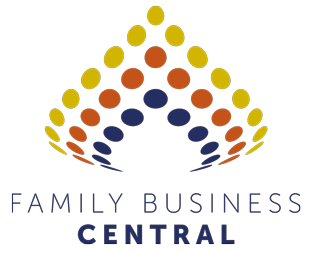
The Best Way to Discuss Succession of Directorship
During a family council meeting recently, while discussing the board, the mum said: “Can we get X (daughter-in-law who runs the technology arm of the business) to sit in on the next three board meetings please? She’ll be an observer but it’s important for her to get her head around how the board operates and the issues that the board is dealing with — especially with this expansion we’re considering.”
As an Advisor to this family’s board, I was delighted. It is important for the daughter-in-law to get her head around how the board operates as she is critical to the growth of the business and at some point, in the future, she or her husband may well sit on the board.
This is a good example of succession of directorship.
Welcome to the second of three blogs on succession. This follows our previous blog on succession of leadership. A lot of people see succession in only two parts: ownership and leadership. The third area of succession, directorship, is equally important and of course has its own challenges.
If we look at the three areas of succession — ownership, leadership and directorship, they are linked but also often happen at different times and in different ways. Often, it is a mix of a good Next Generation Development Plan and estate planning. As long as everyone is clear with what the plan is, it can be done in a number of different ways. The key is clarity and talking about it as early as possible.
There is an inevitability about succession, so the decision is whether we manage it, or get managed by it. We strongly advise that family businesses manage it.
Factors Regarding Succession of Directorship
As with ownership and leadership, directorship needs to be thought through and there are a number of issues for a family to discuss and make decisions around.
This is especially the case for families who are wanting to build a true family business legacy. Take the situation where a business is being passed on to the second generation of four siblings. In reality, what is happening is there is now the potential for four family lines that will continue down the generations. So, while there is the question of leadership and ownership — the question of directorship is there as well. These questions mainly consist of:
- Who should be on the board?
- What qualifications should people have if they are on the board?
- Are these qualifications the same for family and non- family directors?
- Should each family line have board representation?
- What percentage of shareholding gives a family the right to a seat at the board?
Again, a long-term view and our trifecta of Fairness, Honest Conversations and Transparency all come to the fore.
Fairness and Honesty at the Board Level
If the family’s long-term vision is to build a family legacy, then, in our above example, the four families need to see that there is fairness across the four of them. In this case it is fairness of representation at board level.
Then, the next conversation is around the qualifications required for someone to be on the board in the future. For independent non-executive directors this is fairly clear. Broadly, they need to have solid board experience, extensive business knowledge and experience, and maybe certain other areas of expertise the company requires.
When it comes to family, there are a few ways this can be thought through and this is where the honest conversations and transparency come in. For example, does a family member coming on to the Board need to have the same level of experience, board and business knowledge that non-family non-executive directors are required to have?
Or, if they have a level of knowledge, can they come on to the board essentially as representatives of their family line? This is an important but not necessarily easy conversation to have, and it is different for different families.
Possible Choices for Directors on the Board
There is an argument that all members of the Board, whether family or otherwise, should all have extensive knowledge and experience to bring to the board so the Board can make good strategic and business decisions for the company.
There is also an argument for family members being able to come on to the board with less skill and knowledge, as long as there are sufficient numbers on the board to help the family board members make good decisions. However, a family member coming on to the board must know the risks and responsibilities they have as Directors — these are not trivial, and they need to be completely aware of what this entails — regardless of the experience or expertise they have.
There are, of course, pros and cons and risks to both — hence why we spend so much time helping families have these important discussions.
Getting the Next Generation Involved at Board Level
The other opportunity that is often missed is from the initial example above. Getting family members to sit in on the board as observers is a huge part of the Next Generation Development Plan (you do have one of those don’t you??)…
Getting members of the next generation to see just how things are done, the level of complexity and what really goes into running a business is incredibly helpful. This is assuming all the rules around confidentiality etc. are in place.
This applies to potentially all members of the Next Generation regardless of whether they have any involvement now or in the future. For those family members not directly involved in the business, having this background knowledge helps them stay in tune with what is going on in the family business and gives them an appreciation of just what is required to run and grow the company. This level of transparency goes a long way in helping those not involved in the business to feel comfortable that the business is in safe hands and is traveling well — which we know, members of the Next Generation are nearly always interested in.
The key thing this approach does is encourage good sharing of information, provide a feeling of fairness as well as a sense of security that things are being run well. All helping to reduce conflict and misunderstanding within the family.
Not all families see things this way and so will come up with other solutions. However, it is the process of how they have these discussions within the family that is often more important than the actual decision reached.
So, when you’re thinking of succession, remember that succession of directorship is both crucial for the family business, while also providing great learning opportunities for the family.
To talk to us more about this, contact Philip on philip@familybusinesscentral.com


